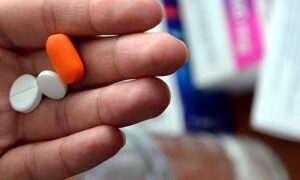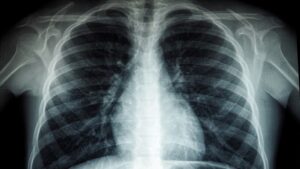[ad_1]
Many people’s acne gets worse in the winter. This is mainly due to the dryness of the atmosphere and staying indoors with heating devices that dehydrate the skin. Unlike summer, these factors are more difficult to manage.
In addition, the treatments applied differ according to the season, since those that take place in the summer are more “aggressive” and may worsen acne in the winter.
With the festive season just around the corner, when everyone wants to have a “clearer”, brighter and more attractive skin, it is necessary to adapt both skin care and treatment.
“The climatic conditions that prevail in winter are hard on the skin. Cold, wind, rain, snow and lack of humidity (both indoors and outdoors) can dry it out. As these phenomena worsen, so do the symptoms of acne.
Essentially, exposure to the cold puts the skin under a form of stress which increases inflammation. So sufferers of acne, or any other chronic inflammatory skin disease, see their skin getting worse, especially at the beginning of winter and until the body adapts to the new weather conditions – just before Christmas.
Compared to summer, rates of moderate to severe acne increased in winter by 11%, a study of acne patients in New England, United States, showed.
The causes of this deterioration are many: on the one hand, excessive dryness of the skin reduces its ability to fight bacterial infections, on the other hand, dehydrated skin forces the body to produce more than the necessary amount of sebum, to keep it hydrated and elastic.
But over-secretion of this oil can cause dead skin cells to become trapped, clog pores, favor bacterial growth and ultimately lead to acne breakouts,” explains the Dermatologist-Venoretologist Dr. Christos Stamou.
It has recently been shown that acne-prone skins have a reduced function of the epidermal barrier – their first layer of defense, which is mainly composed of ceramides, cholesterol and essential fatty acids.
A study investigating the seasonal variation of ceramides in the stratum corneum found that skin with acne has lower levels of ceramides overall, especially in the winter months. These cause an increase in the loss of water from the skin of patients, compared to those with healthy skin, which, however, partially subsides in the summer.
Winter conditions also affect vitamin D levels in the body – staying indoors, fewer days of sunshine and hours per day. Research shows that those with lower levels of this vitamin are more prone to developing acne. And this is because the drop in immunity caused by its lack makes it difficult to deal with the attacks of bacteria that cause the condition.
Therefore, the extra protection of acne-prone skin in winter is necessary and consists in its very careful care, which includes:
– Avoiding touching him. It is an advice that applies throughout the year, since it can become the cause of the transfer of infectious agents to it.
– Cleaning it with a milder cleaner than the one used in the summer. And this is because in the warm months there is a need to remove excess oil caused by conditions and products (e.g. sunscreens). However, it is not allowed to clean it more than 2 times a day.
– Moisturize with products aimed at acne-prone skin rather than thick, creamy moisturizers. It is good to use products without greasy elements that contain substances that help shield moisture, such as hyaluronic acid.
– Choosing the right hydration time. The application of the moisturizing product should be done immediately after washing the skin (face and body), so that the moisture is trapped and the irritations subside.
– The adaptation of the therapeutic treatment to the cold weather. Topical medications recommended to treat acne symptoms dry out the skin. Avoiding them and/or using them only on the problem area and not on the whole skin prevents its dryness and breakouts, improving its appearance.
– The application of mild exfoliating products, to remove dead cells, as well as sunscreen every time you are outdoors.
“As we approach the holidays, acne sufferers or those prone to acne should watch their diet, as sugar, carbohydrates and dairy are blamed for flare-ups.
But mostly they should pay attention to alcohol consumption, since it can affect the balance of hormones, such as estradiol, testosterone and luteinizing hormone and lead to acne.
Alcohol also causes a reduced immune response, so an infection from bacteria that is responsible for the flare-up of symptoms is more likely. It can also cause dehydration, through diuresis, which causes excessive secretion of sebum. Because it is difficult to completely avoid its consumption, it is good for those with a tendency to acne to consume more water.
Finally, they should keep in mind that both the stress, which during the holidays is caused by obligations and preparations, as well as lack of sleep are causes of acne worsening.
So, for a clear skin during the holidays, they must adjust their skin care, but also the treatment under the guidance of the attending physician, pay attention to the diet, control the amount of alcohol they will consume, find ways to control their anxiety and to get enough sleep”, concludes Dr. Christos Stamou.
[ad_2]
Source link






